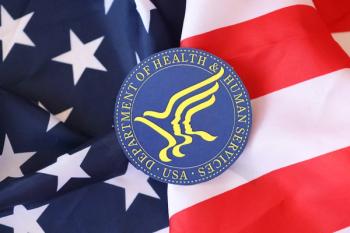
What's Going On with the Infant Formula Shortage
Parents are on edge as the formula shortage worsens across the United States. Pediatricians, the AAP, and White House advise on available options.
Due to COVID-19 pandemic supply issues stemming from the February closure of a major production plant, 43% of infant formulas are currently out of stock at stores across the United States. Now, parents are worried about what this means for their families and how they are going to feed their infants.1
The initial February closure of an Abbott Nutrition manufacturing plant occurred after concerns about bacterial contamination at the company’s Sturgis, Michigan, facility, triggering a voluntary recall of several lines of powdered formula. The recall began after 4 infants fell ill and 2 died.2
Although governmental bodies are currently working on a solution, pediatricians and charities are bracing for the worst, according to the New York Times.3
As families try to cope with the storage, pediatricians say they should be the first contact. Health care providers may be able to provide formula samples to families who are unable to find a preferred brand and connect families with local charities or formula representatives who can help. Women, Infants and Children (WIC) offices are also a trusted resource,4 and local parenting groups may also be a good place to check, as regional Facebook groups have popped up to help parents find formula.5
If the preferred formula cannot be found, most healthy babies are able to safely switch to any FDA approved baby formula available in stores or through a reputable online retailer, according to healthychildren.org, a website run by the American Academy of Pediatrics (AAP).6 The AAP, however, warns against buying from auction sites or overseas vendors, as they are not regulated by the FDA.
For infants needing specialized formulas due to allergy or medical conditions, the alternatives are more complicated. Specifically, formulas with broken-down proteins or that are amino acid based need to be carefully substituted. The AAP recommends contacting a pediatrician about specialty formula alternatives.
Watering down existing formula is not recommended, according to the AAP. “While it may be tempting to water down formula to stretch it out, it is not safe to do that,” according to an article by Steven A. Abrams, MD, FAAP, published on healthychildren.org.6 “Always follow label instructions or those given to you by your pediatrician. Watering down formula is dangerous.”
Additionally, AAP does not recommend making homemade formula and advises parents as such. Although it is not recommended, using toddler formula if there is no other choice is safe for a few days for babies close to a year of age. In a similar situation, using whole cow’s milk for a brief period of time is also safe.
“This is not ideal and should not become routine but is a better option than diluting formula or making homemade formula,” Abrams wrote.
When switching formulas, relay to parents the need to stay within the same category as their current mixture. These categories include milk-based, soy-based, and sensitive varieties.
It is safe to swap formulas right away if there isn’t any more of the original formula left, but if there is time, it is recommended to stretch out the change over a few days.
Using donor breast milk is also an option for parents, however it can be difficult to obtain and costly.7 Visit the Human Milk Banking Association of North America if a parent asks questions about the option.8
Advise parents to avoid informal milk-swaps, as the AAP has long deemed them to be unsafe and could expose infants to bacteria, viruses, medications, or herbs from the donor.
In response to the increased shortage, President Joe Biden announced on May 12 additional steps being taken to address the shortage, in a statement published through the White House briefing room.9
Recently, the FDA announced that they are allowing Abbot Nutrition, the supplier of amino acid-based formula EleCare—which has no store-brand alternative—to release “urgent, life-sustaining supplies” of certain specialty formulas on a case-by-case basis.10
Even so, the company says the formula wouldn’t hit shelves for 2 months.11 Pediatricians should be ready for parents to contact them for help submitting these urgent requests for specialty formulas.
Biden, in the announcement, called on the Federal Trade Commission and State Attorneys General to help prevent any price gouging or unfair market practices on the sale of infant formulas.9
“DOJ [Department of Justice] is engaging with state attorneys general to encourage them to use their powers to monitor and address price gouging in the infant formula market and urging them to devote more resources to monitoring predatory behavior in the market for infant formula,” the statement said. “And the president today asked the Federal Trade Commission to use all its available tools to monitor and investigate reports of illegal and predatory conduct.”
The White House statement also noted that that additional steps will be announced in the coming days to address the importing of certain infant formula products from abroad.
This article originally appeared on Contemporary Pediatrics.
References
- Datasembly releases latest numbers on baby formula. Datasembly. Published May 10, 2022. Accessed May 13, 2022.
https://datasembly.com/news/out-of-stock-rate-in-april-2022-copy/ - Abbott voluntarily recalls powder formulas manufactured at one Plant. FDA. Published February 17, 2022. Accessed May 13, 2022.
https://www.fda.gov/safety/recalls-market-withdrawals-safety-alerts/abbott-voluntarily-recalls-powder-formulas-manufactured-one-plant - Pearson C. What parents need to know about the formula shortage. The New York Times. Published May 13, 2022. Accessed May 13, 2022.
https://www.nytimes.com/article/formula-shortage-help.html - Women, infants & children (WIC). Ohio Department of Health. Accessed May 13, 2022.
https://odh.ohio.gov/know-our-programs/women-infants-children/resources/women-infants-children-description - Find my formula CT. Facebook. Accessed May 13, 2022.
https://www.facebook.com/groups/225023569839489 - Abrams S. With the baby formula shortage, what should I do if I can't find any? healthychildren.org. Updated May 13, 2022. Accessed May 13, 2022.
https://www.healthychildren.org/English/tips-tools/ask-the-pediatrician/Pages/Are-there-shortages-of-infant-formula-due-to-COVID-19.aspx - Paying for milk. AAP Journals Blog. Published February 28, 2018. Accessed May 13, 2022.
https://publications.aap.org/journal-blogs/blog/4300 - Human Milk Banking Association of North America. Human Milk Banking Association of North America. Accessed May 13, 2022.
https://www.hmbana.org/ - Fact sheet: President Biden announces additional steps to address infant formula shortage. The White House. Published May 12, 2022. Accessed May 13, 2022.
https://www.whitehouse.gov/briefing-room/statements-releases/2022/05/12/fact-sheet-president-biden-announces-additional-steps-to-address-infant-formula-shortage/ - FDA takes important steps to improve supply of infant and specialty formula products. FDA. Published May 10, 2022. Accessed May 13, 2022.
https://www.fda.gov/news-events/press-announcements/fda-takes-important-steps-improve-supply-infant-and-specialty-formula-products - Oladipo G. Abbott says two months for baby formula to hit shelves amid US shortage. The Guardian. Published May 12, 2022. Accessed May 13, 2022.
https://www.theguardian.com/us-news/2022/may/12/abbott-baby-formula-shortage-recall
Newsletter
Pharmacy practice is always changing. Stay ahead of the curve with the Drug Topics newsletter and get the latest drug information, industry trends, and patient care tips.























